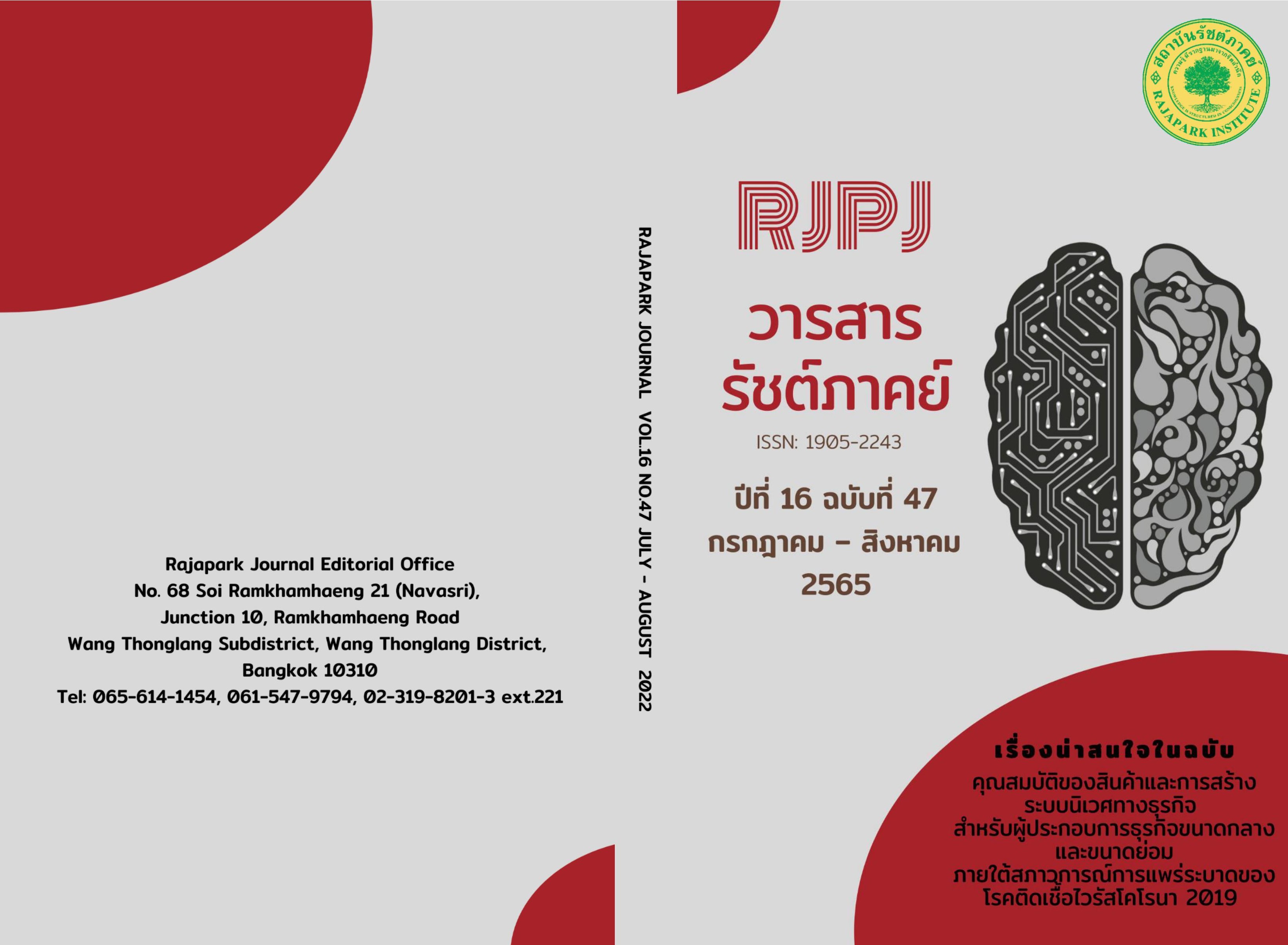Paradigm, Pattern and Mechanism of Teacher Development Based on Spatial Network Concepts: A Case Study of Northern Areas
Main Article Content
Abstract
The objectives of this research were 1) to study the current and desirable conditions of teacher development; 2) to develop a paradigm for teacher development models and mechanisms; and 3) to formulate a policy proposal for a paradigm, patterns, and mechanisms for teacher development based on spatial network concepts mixed method, The Exploratory Sequential Design, with the first period being qualitative research with a population and a sample of 227 people, namely Phayao University, Faculty of Education, Chiang Rai Rajabhat University, Faculty of Engineering, Rajamangala University of Technology Lanna. This study used questionnaires to collect information. Data were analyzed by the statistics used in the analysis were frequency and percentage, mean, standard deviation. and content analysis. The results showed that the current state and the desirable state of the paradigm are teacher development that aims to achieve the drive and intrinsic quality of individual teachers from the application of information technology. communication technology and digital platforms paradigm development effect model and Mechanism is teacher development through the creation of an online professional learning community with coaching and guiding that emphasizes practical action, Mechanisms and policy proposals are the network of educational institutions. Teacher development by a network of schools at the district level and policy proposal.
Article Details

This work is licensed under a Creative Commons Attribution-NonCommercial-NoDerivatives 4.0 International License.
Views and opinions appearing in the Journal it is the responsibility of the author of the article, and does not constitute the view and responsibility of the editorial team.
References
Abdal-Haqq, I. (1998). Professional Development Schools: What Do We Know? What Do We Need to Know? How Do We Find Out? Who Do We Tell?. Towson University. https://files.eric.ed.gov/fulltext/ED425142.pdf
Cheng, Y. C. (2004). Three Waves of Teacher Education and Development: Paradigm Shift in Applying ICT. In Keynote Speech Presented at The Scandinavian / Asian Pacific Conference on "The Challenge of Integrating ICT in Teacher Education” (pp.1-34), Organized by School of Education and Communication, Jönköping University June 2-4, 2004, Jönköping Sweden. http://home.eduhk.hk/~yccheng/doc/speeches/2-4jun04.pdf
Colburn, A. (1993). Creating Professional Development Schools. Phi Delta Kappa Educational Foundation.
Dyson, A., Kerr, K., & Raffo, C. (2012). Area-Based Initiatives in England: Do They Have a Future?. Revue Francaise de Pedagogie, 178(178), 27-38. DOI:10.4000/rfp.3518
Fielding, A. J., Cavanagh, D. M., & Widdowson, R. E. (1978). Diploma in Education? Rethinking the Curriculum. Australian journal of teacher education, 3(2). http://dx.doi.org/10.14221/ajte.1978v3n2.1
Fielding, T. (1983a). The Theme of Teacher Development. Australian Journal of Teacher Education, 8(2). http://dx.doi.org/10.14221/ajte.1983v8n2.1
Fielding, T. (1983b). Personal Construct Theory as a Basis for a Non-deterministic Model of Teacher Development. Australian Journal of Teacher Education, 8(2). http://dx.doi.org/10.14221/ajte.1983v8n2.2
McNamara, D. (1983). Less Idealism and More Realism: The Programme for Teacher Education. Australian Journal of Teacher Education, 8(2). http://dx.doi.org/10.14221/ajte.1983v8n2.5
Office of the Education Council. (2015). Report on the Results of a Study on the Status of Teacher Production and Development in Thailand. Prikwarn Graphic.
Office of the Education Council. (2018). Mechanisms for the Production and Development of High-performance Teachers for Thailand 4.0. Office of the Education Council, Ministry of Education.
Van Velzen, C., Bezzina, C., & Lorist, P. (2009). Partnerships Between Schools and Teacher Education Institutes. In Becoming a Teacher Educator (pp.59-73). Springer, Dordrecht.
Yamkasikorn, M. (2017). Essential Paradigms for Teacher Development. In The System and Model of Teacher Development Suitable for Thai Society and Internationalization. (pp.139-143). Office of the Education Council. http://www.onec.go.th/th.php/book/BookView/1558


